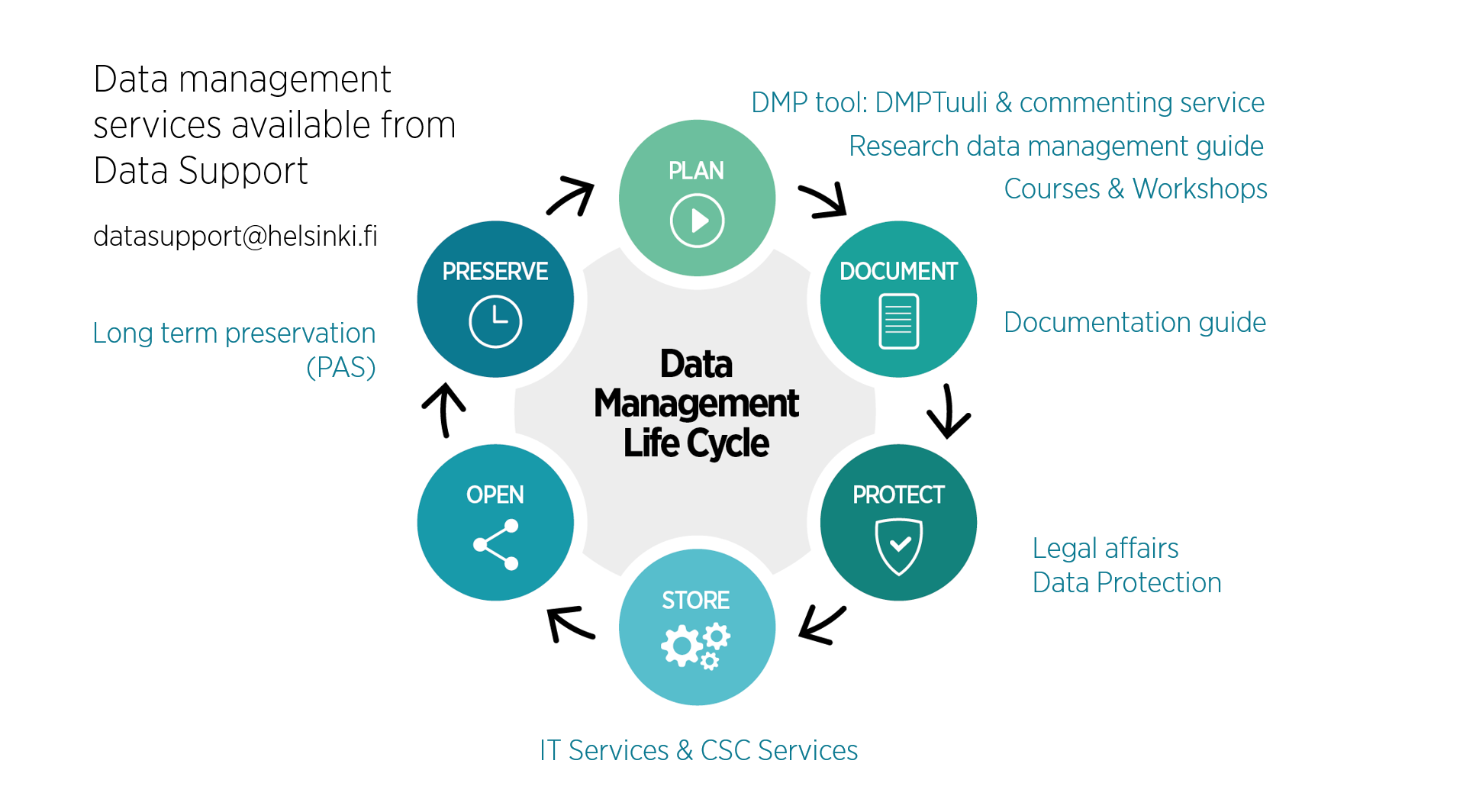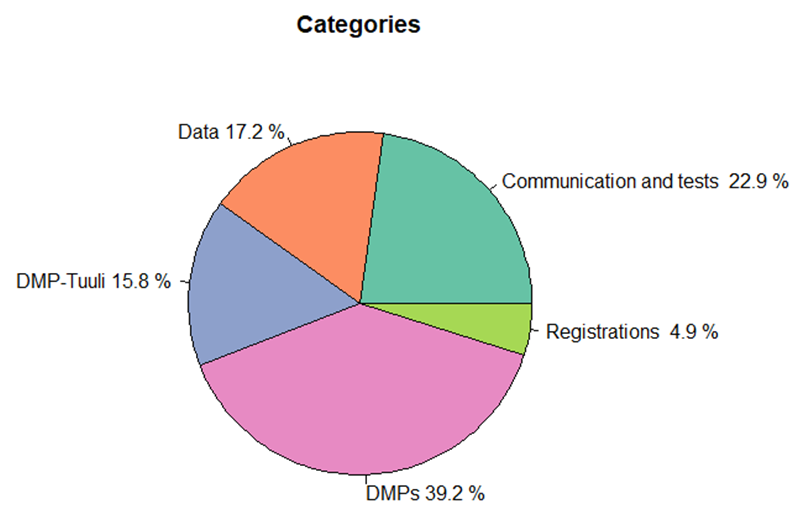University of Helsinki Data Support, a network of experts ranging from library staff to lawyers, helps researchers all year long via a service address datasupport@helsinki.fi. To be able to develop services, Data Support investigated what are the most frequently asked topics in the service email by researchers. Along with data management plan commenting service, most questions asked by the researchers handled sensitive data management as well as storing solutions.
Text: Siiri Fuchs & Tanja Lindholm
University of Helsinki Data Support helps researchers in research data management (RDM) related questions all year long via a secure service email address datasupport@helsinki.fi along with other services (Fig. 1). Researcher can contact expert help including library specialists, IT services, lawyers, data protection as well as research affairs using only one service address. The online service is provided by Efecte IT Services and maintained by the university library information specialists, who answer the questions or forward the message to the right specialist.

The service address was launched in the beginning of 2018 and until July 2019 651 tickets (emails from researchers) had arrived. To develop services Data Support studied what are the most common topics and data related questions researchers ask related to RDM as well as whether questions handle sensitive data management.
The tickets were divided into five categories based on the topic (Fig. 2):
- around 40% were expert reviews on data management plans (DMPs),
- 20 % communication and tests,
- 17% data related questions,
- 16% technical issues arising from Finnish data management planning tool DMPTuuli, and
- 5 % were i.e. registrations to courses.

We further classified data related questions (n=112) into five subcategories (Fig. 3). Almost half of the questions (42 %) were about data storage and sharing. One fifth (22 %) of the questions were general consultation about research data management, and the rest divided between opening data (14%), different tools (10%), and agreements for example about data ownership issues (10 %). Around third of all the data related questions (28 %) considered sensitive data management, for example where to store the data.

What did we learn?
DMP-commenting service
The main use of the Data Support service address is reviewing researcher’s Data management plans. Around two hundred plans get commented per year with two peak periods in fall and spring during the Academy of Finland calls. Many researchers have found Data Support’s commenting service during funding calls, nevertheless, the services for data management and creating DMPs are available throughout the year!
Storage and Sharing
Almost half of the data related questions were about where, when and how to store as well as share data. There are probably many reasons why storing solutions were one of the most frequently asked questions, but as the amount of data collected and produced has grown exponentially in the last decade, it is not surprising to show as a demand of space and questions. For example, the size of a personal storage space in UH has grown from almost nothing to 50 Gb. Also, other storing and sharing solutions have developed during the past years. Recently Data Support gathered all university storing solution to one online table with details such as whether the solution is acceptable for sensitive data.
Sensitive Data Management
An important part of data management is to identify sensitive data types and take care of data protection. Researchers were frequently inquiring issues about sensitive data management, especially where to store sensitive data. IT services have been up to date with researchers needs and a safe storage platform called UMPIO for sensitive data was launched in the beginning of 2019. More information and guidance how to start using UMPIO on Helpdesk webpage.
Questions NOT asked
Interestingly, the survey revealed that for example questions related to budgeting of data management were almost completely missing. This is most likely not due budgeting of data management being clear, but more likely as it is not recognized as an important issue by the researches.
What to develop and why?
Based on this small study, more effort should be put in sensitive data management as well as storing and sharing research data. At the same time, questions not asked need to be noted and more information provided for the researchers. Data Support will use the results to develop services and to provide help in the most trickiest questions of RDM to researchers.
Siiri Fuchs (ORCID, TUHAT, @FuchsSiiri) and Tanja Lindholm (ORCID, TUHAT, @TanjaLindholm1) work as Information Specialists at the University of Helsinki Data Support.
